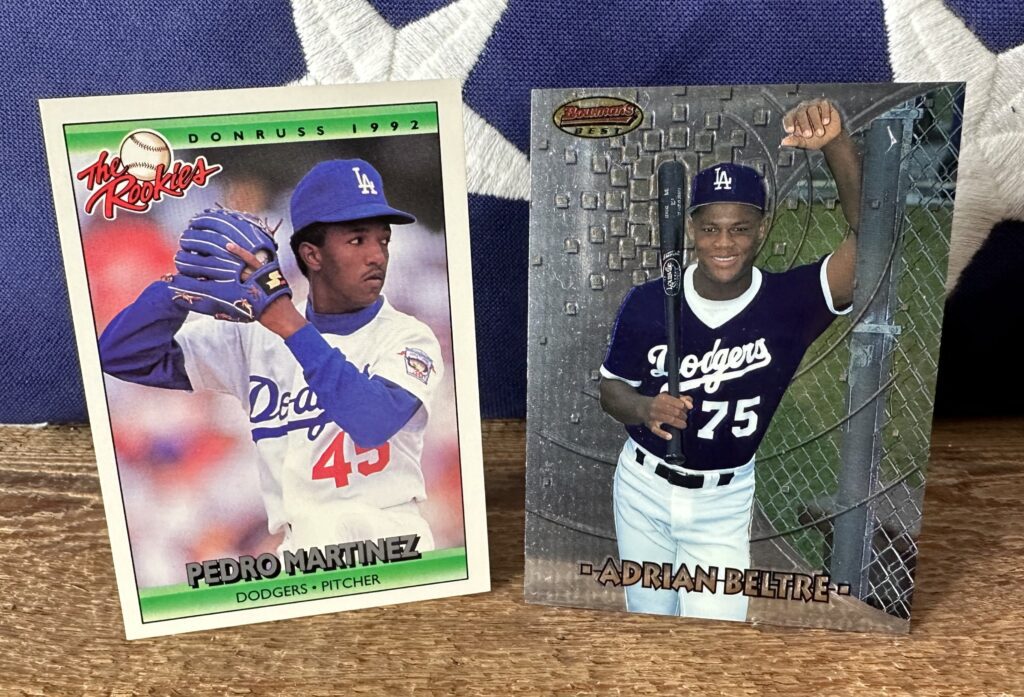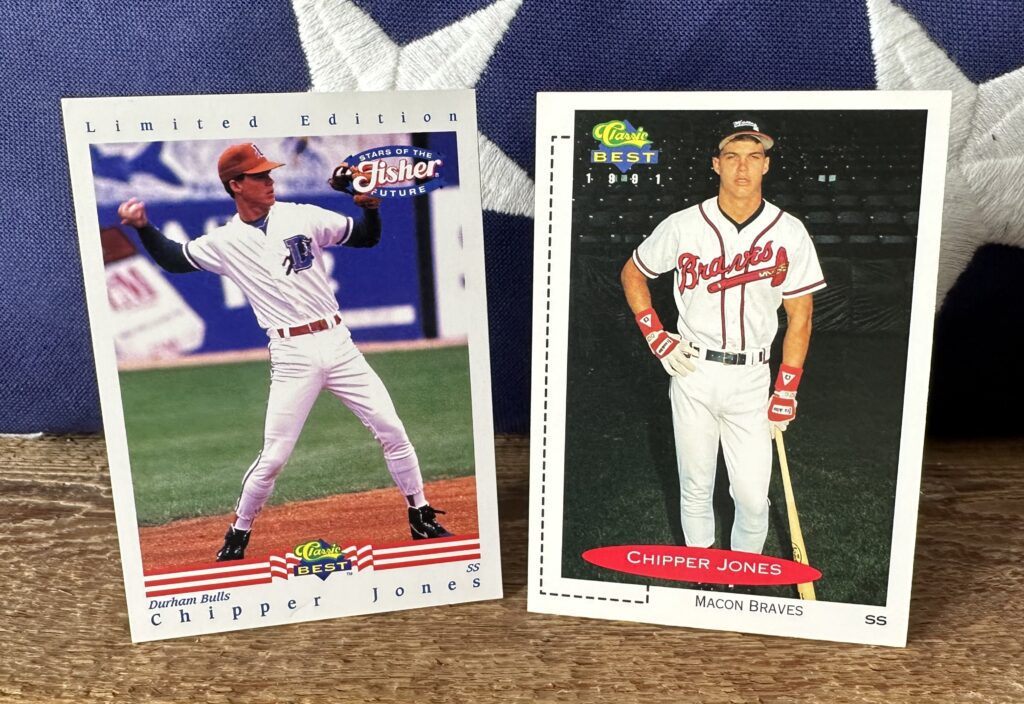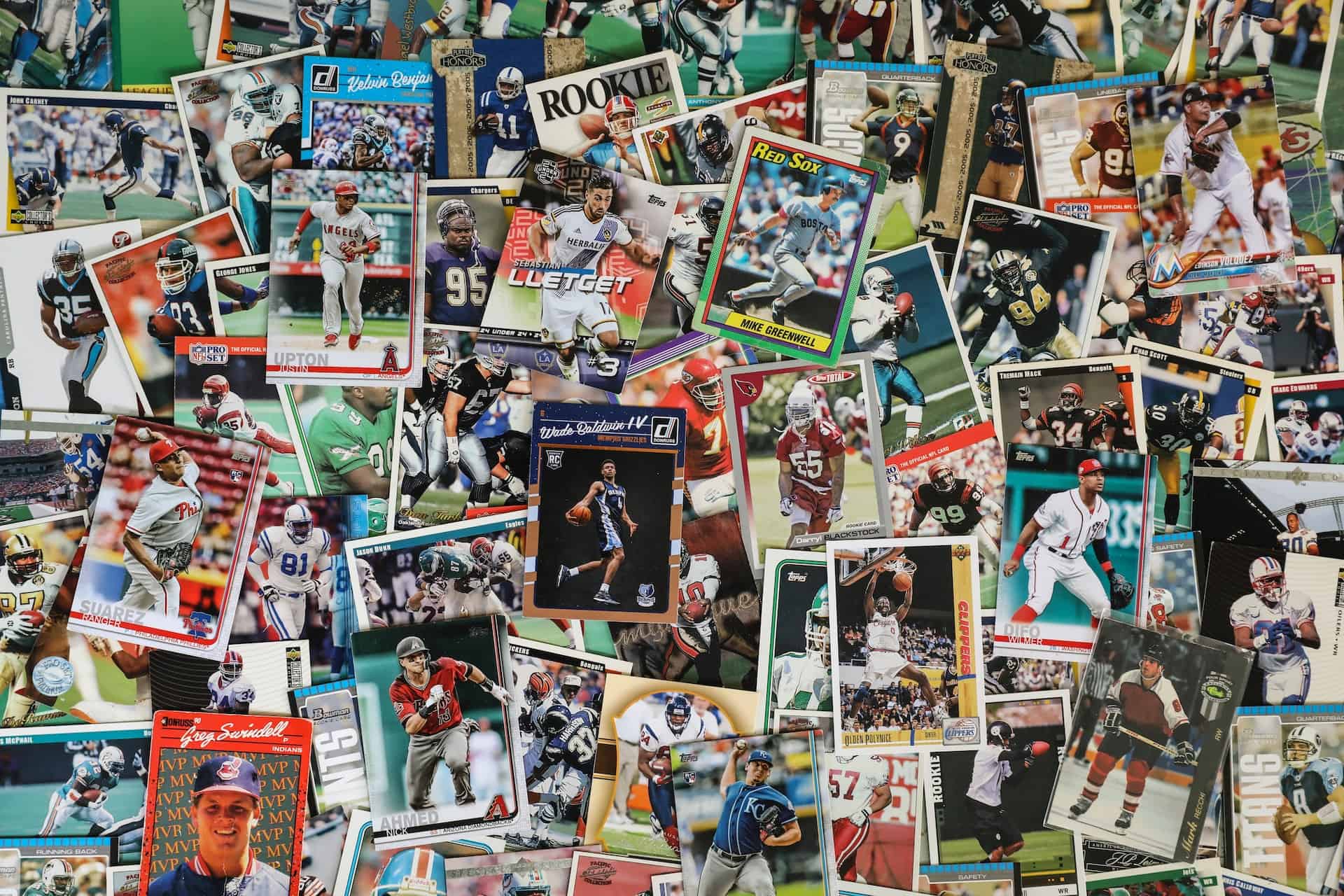Why Selling Your Baseball Cards Requires a Strategic Approach
Selling a baseball card collection can be a daunting task, especially for those who are new to the hobby. With so many places to sell baseball cards, it’s essential to research and choose the right platform to ensure maximum profit. The wrong sales channel or buyer can result in a significant loss of value, leaving the seller with a fraction of the collection’s worth.
One of the primary reasons a strategic approach is necessary is the vast array of options available. Online marketplaces, specialized card shops, local card shows, and auction houses all offer different benefits and drawbacks. Each platform has its unique fees, user bases, and features, making it crucial to understand the nuances of each before making a decision.
For instance, online marketplaces like eBay and COMC (Check Out My Cards) offer a vast customer base and competitive pricing, but they also come with fees that can eat into the seller’s profit. Specialized card shops and local card shows, on the other hand, provide a more personalized service and the potential for higher prices, but they may not offer the same level of exposure as online marketplaces.
A strategic approach also involves understanding the current market trends and demand for specific baseball cards. By researching and staying up-to-date on the latest market developments, sellers can make informed decisions about which cards to sell, when to sell them, and for how much. This knowledge can help sellers navigate the complex world of baseball card sales and ensure they get the best possible price for their collection.
In addition to market research, it’s essential to consider the condition, rarity, and authenticity of the baseball cards. Cards that are in good condition, rare, or have been authenticated by a reputable service like PSA (Professional Sports Authenticator) or Beckett Grading Services can command a higher price. By highlighting these factors, sellers can attract more buyers and increase the value of their collection.
Ultimately, selling a baseball card collection requires a thoughtful and strategic approach. By researching the market, understanding the different sales channels, and highlighting the unique features of the collection, sellers can maximize their profit and ensure a successful sale. Whether you’re looking to sell your collection online or in-person, taking the time to develop a strategic approach will pay off in the end.
How to Determine the Value of Your Baseball Cards Before Selling
Determining the value of baseball cards is a crucial step in the selling process. It’s essential to understand the condition, rarity, and demand of each card to determine its value. One way to start is by consulting price guides, such as the Beckett Grading Services’ Price Guide or the Sports Collectors Digest Price Guide. These guides provide a comprehensive list of baseball cards, including their values, based on their condition and rarity.
In addition to price guides, online marketplaces like eBay and COMC (Check Out My Cards) can provide valuable insights into the current market demand and prices for specific baseball cards. By researching completed listings and current auctions, sellers can get an idea of what similar cards are selling for and adjust their prices accordingly.
Condition is also a critical factor in determining the value of baseball cards. Cards that are in good condition, with minimal wear and tear, can command a higher price than those that are damaged or worn. Sellers should carefully inspect their cards and grade them according to their condition, using a standardized grading system like the one used by PSA (Professional Sports Authenticator).
Rarity is another essential factor in determining the value of baseball cards. Cards that are harder to find, such as limited edition or autographed cards, can be more valuable than common cards. Sellers should research the rarity of their cards and highlight this information when listing them for sale.
Demand is also a significant factor in determining the value of baseball cards. Cards that are in high demand, such as those featuring popular players or teams, can command a higher price than those that are less popular. Sellers should stay up-to-date on current market trends and adjust their prices accordingly.
By considering these factors, sellers can determine the value of their baseball cards and price them competitively. This will help attract more buyers and increase the chances of selling the cards for a good price. Whether you’re selling your collection online or in-person, understanding the value of your baseball cards is essential to getting the best possible price.
Top Online Marketplaces to Sell Baseball Cards
When it comes to selling baseball cards online, there are several marketplaces to choose from. Each platform has its own fees, user base, and features, making it essential to research and compare them before deciding where to sell. Here are some of the top online marketplaces for selling baseball cards:
eBay is one of the most popular online marketplaces for buying and selling baseball cards. With over 183 million active users, eBay offers a vast customer base and competitive pricing. However, eBay charges a listing fee of $0.30 per item, as well as a final value fee of 8% to 12.5% of the sale price.
COMC (Check Out My Cards) is another popular online marketplace for selling baseball cards. COMC charges a listing fee of $0.25 per item, as well as a commission fee of 10% to 15% of the sale price. However, COMC offers a more specialized platform for baseball card collectors, with features like price guides and card grading.
Sportslot is a newer online marketplace that specializes in sports collectibles, including baseball cards. Sportslot charges a listing fee of $0.10 per item, as well as a commission fee of 8% to 12% of the sale price. However, Sportslot offers a more streamlined platform and lower fees than some of the other online marketplaces.
When choosing an online marketplace to sell baseball cards, it’s essential to consider the fees, user base, and features of each platform. By researching and comparing the different options, sellers can choose the best platform for their needs and maximize their profit.
In addition to the online marketplaces mentioned above, there are also several other platforms to consider, such as Beckett Grading Services’ online marketplace and the PSA (Professional Sports Authenticator) online marketplace. These platforms offer specialized services for baseball card collectors and can provide a more targeted audience for sellers.
Ultimately, the best online marketplace for selling baseball cards will depend on the individual seller’s needs and goals. By researching and comparing the different options, sellers can choose the best platform for their needs and maximize their profit.
Specialized Card Shops and Local Card Shows
For those looking for a more personalized and potentially lucrative way to sell their baseball cards, specialized card shops and local card shows are excellent options. These places to sell baseball cards offer a unique opportunity to connect with collectors and enthusiasts who are passionate about baseball cards.
Specialized card shops are stores that focus specifically on buying and selling sports collectibles, including baseball cards. These shops often have a deep understanding of the market and can offer expert advice on pricing and condition. They may also have a loyal customer base of collectors who are looking for specific cards or sets.
Local card shows are events where collectors and dealers gather to buy, sell, and trade sports collectibles. These shows can be a great place to sell baseball cards, as they attract a dedicated audience of collectors who are looking for specific items. Local card shows may also offer a more relaxed and personalized atmosphere, allowing sellers to connect with buyers and negotiate prices.
One of the benefits of selling baseball cards to specialized card shops and local card shows is the potential for higher prices. These places often attract serious collectors who are willing to pay a premium for rare or hard-to-find cards. Additionally, specialized card shops and local card shows may offer more personalized service, allowing sellers to get a better sense of the market and negotiate prices more effectively.
However, it’s essential to research and carefully select the specialized card shops and local card shows where you plan to sell your baseball cards. Look for shops and shows that have a good reputation, a strong customer base, and a deep understanding of the market. This will help ensure that you get the best possible price for your cards.
When selling baseball cards to specialized card shops and local card shows, it’s also crucial to be prepared. Make sure you have a clear understanding of the condition and value of your cards, and be prepared to negotiate prices. Additionally, consider getting your cards graded and authenticated by a reputable service, such as PSA (Professional Sports Authenticator) or Beckett Grading Services, to increase their value and credibility.
Card Grading and Authentication Services
When it comes to selling baseball cards, one of the most important factors in determining their value is their condition and authenticity. Card grading and authentication services play a crucial role in verifying the condition and legitimacy of baseball cards, which can significantly impact their value.
PSA (Professional Sports Authenticator) and Beckett Grading Services are two of the most well-known and respected card grading and authentication services in the industry. These companies use a standardized grading system to evaluate the condition of baseball cards, taking into account factors such as centering, corners, edges, and surface quality.
The grading process involves submitting the baseball card to the grading service, where it is evaluated and assigned a grade on a scale of 1 to 10. The grade is then encapsulated in a tamper-evident plastic slab, which provides a secure and tamper-proof way to store and display the card.
Card grading and authentication services provide several benefits to baseball card collectors and sellers. Firstly, they provide a third-party verification of the card’s condition and authenticity, which can increase its value and credibility. Secondly, they provide a standardized grading system, which allows collectors and sellers to compare the condition of different cards. Finally, they provide a secure and tamper-proof way to store and display the card, which can help to preserve its condition and value.
When choosing a card grading and authentication service, it’s essential to research and carefully select a reputable company. Look for companies that have a strong reputation, a standardized grading system, and a secure and tamper-proof encapsulation process.
In addition to PSA and Beckett Grading Services, there are several other card grading and authentication services available, including Sportscard Guaranty (SGC) and International Sports Authentication (ISA). Each of these services has its own grading system and encapsulation process, so it’s essential to research and compare them before making a decision.
By using a reputable card grading and authentication service, baseball card collectors and sellers can increase the value and credibility of their cards, and provide a secure and tamper-proof way to store and display them.
Auction Houses and High-End Sales
For those looking to sell their baseball cards for top dollar, auction houses can be a great option. Auction houses specialize in selling rare and valuable items, including baseball cards, to a targeted audience of collectors and enthusiasts.
The process of consigning baseball cards to an auction house typically begins with a consultation with an expert appraiser. The appraiser will evaluate the condition, rarity, and demand of the cards to determine their value and potential for sale.
Once the cards are consigned to the auction house, they will be cataloged and marketed to potential buyers through various channels, including online listings, print catalogs, and social media. The auction house will also handle all aspects of the sale, including setting the starting bid, managing the bidding process, and collecting payment from the buyer.
Auction houses typically charge a commission fee on the sale price of the cards, which can range from 10% to 20% depending on the auction house and the value of the cards. However, the potential for high-end sales and the expertise of the auction house can make the commission fee well worth it.
Some of the top auction houses for selling baseball cards include Heritage Auctions, Lelands, and SCP Auctions. These auction houses have a reputation for selling rare and valuable baseball cards for top dollar, and they offer a range of services to help sellers maximize their profit.
In addition to auction houses, there are also several online platforms that specialize in high-end sales of baseball cards. These platforms, such as eBay’s “Auction” section and COMC’s “Auction” section, offer a range of features and services to help sellers maximize their profit, including expert appraisals, marketing, and payment processing.
When considering auction houses or online platforms for high-end sales, it’s essential to research and carefully select a reputable company. Look for companies that have a strong reputation, a proven track record of selling rare and valuable baseball cards, and a range of services to help sellers maximize their profit.
Tips for Selling Baseball Cards on Social Media and Online Forums
Social media and online forums can be a great way to sell baseball cards, especially for those who are looking to reach a wider audience. However, it’s essential to use these platforms effectively to maximize your profit.
One of the most important things to consider when selling baseball cards on social media and online forums is the quality of your images. High-quality images can help to showcase the condition and authenticity of your cards, which can increase their value and credibility.
When taking images of your baseball cards, make sure to use good lighting and a clear background. You should also consider using a camera or smartphone with a high-quality camera to ensure that your images are sharp and clear.
In addition to high-quality images, detailed descriptions are also essential when selling baseball cards on social media and online forums. Your descriptions should include information about the condition, rarity, and authenticity of your cards, as well as any relevant details about the player or team.
When writing your descriptions, make sure to be clear and concise. Avoid using jargon or technical terms that may be unfamiliar to potential buyers. You should also consider including keywords related to the player or team to help your listings appear in search results.
Another important thing to consider when selling baseball cards on social media and online forums is the price. You should research the market value of your cards to ensure that you are pricing them competitively. You can use price guides and online marketplaces to determine the value of your cards.
Finally, be prepared to negotiate with potential buyers. Some buyers may try to lowball you or make offers that are below the market value of your cards. Be prepared to negotiate and consider offering discounts or bundles to attract more buyers.
Some popular social media platforms for selling baseball cards include Facebook, Twitter, and Instagram. You can also use online forums such as Reddit’s r/baseballcards and r/sportscards to connect with potential buyers.
By following these tips, you can effectively sell your baseball cards on social media and online forums and maximize your profit.
Maximizing Your Profit: Pricing Strategies and Negotiation Techniques
Pricing your baseball cards competitively is crucial to maximizing your profit. To determine the optimal price for your cards, you should research the market value of similar cards using price guides and online marketplaces.
Price guides, such as the Beckett Grading Services’ Price Guide or the Sports Collectors Digest Price Guide, provide a comprehensive list of baseball cards, including their values, based on their condition and rarity. Online marketplaces, such as eBay and COMC (Check Out My Cards), also provide valuable insights into the current market demand and prices for specific baseball cards.
When pricing your baseball cards, it’s essential to consider the condition, rarity, and demand of each card. Cards that are in good condition, rare, or in high demand can command a higher price than those that are common or in poor condition.
Negotiation techniques are also crucial to maximizing your profit. When selling your baseball cards, be prepared to negotiate with potential buyers. Some buyers may try to lowball you or make offers that are below the market value of your cards. Be prepared to counteroffer and consider offering discounts or bundles to attract more buyers.
Another effective pricing strategy is to use a tiered pricing system. This involves pricing your cards in different tiers based on their condition, rarity, and demand. For example, you could price your rare and high-demand cards at a premium, while pricing your common cards at a lower price.
Finally, consider offering free shipping or other incentives to attract more buyers and maximize your profit. Free shipping can be a major selling point, especially for buyers who are looking to purchase multiple cards.
By using these pricing strategies and negotiation techniques, you can maximize your profit and get the best possible price for your baseball cards.






